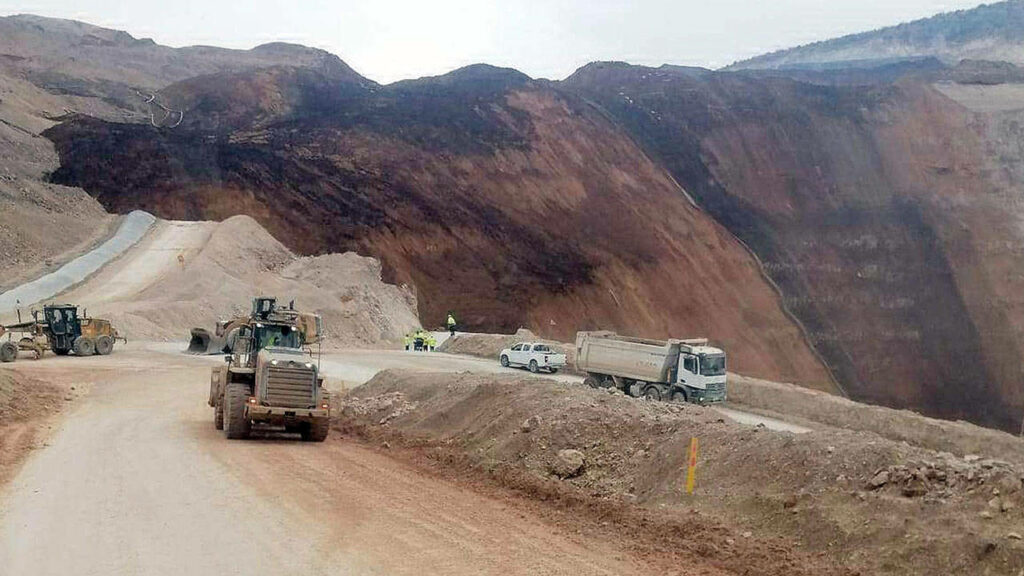A Turkish court has cancelled a positive environmental impact assessment report (ÇED) for a gold mine in eastern Turkey where nine workers died in a landslide in February, saying the region’s vulnerability to natural disasters was not taken into account, the Artı Gerçek news website reported on Wednesday.
Some 10 million cubic meters of soil contaminated with cyanide and sulfuric acid tumbled down the heap leach pad of the Çöpler gold mine in the İliç district of Erzincan on February 13, claiming the lives of nine miners.
According to Turkish media reports based on official documents, Anagold, the company operating the mine, was given the green light by the Ministry of Environment on August 16, 2023, despite explicit warnings from the Disaster and Emergency Management Authority (AFAD) provincial directorate in Erzincan about the risk of landslides.
The mine had previously been declared safe from landslides in environmental impact assessments conducted during the tenure of current Environment, Urbanization and Climate Change Minister Murat Kurum.
The legal battle of Sedat Cezayirlioğlu, a local activist, and lawyer İsmail Hakkı Atal against a positive ÇED report for Anagold’s gold mine site expansion project in the village of Çöpler in İliç began in 2021 when they filed a lawsuit against the environment ministry in an Erzincan court. The court rejected the lawsuit in 2022.
Upon the appeal of the decision, the Council of State, Turkey’s highest administrative court, overturned the rejection and stated that the local court should form an expert committee and make a decision based on scientific reports.
The Erzincan court then reconsidered the case and appointed experts to examine the site. The tragedy that killed nine miners took place while the case was pending.
The Erzincan Administrative Court overturned the final positive ÇED report for Anagold’s gold mine site expansion project, considering the expert reports that examined changes in soil, water and air both before and after the landslide.
The court stated in its decision that the relevant ÇED report could not adequately evaluate the gold mine area in terms of seismicity, erosion, landslides and flooding, adding that it failed to anticipate the landslide that occurred in February.
“The faults directly affecting the project area and the proximity of the North Anatolian Fault, which is Turkey’s most significant fault line, make the region important in terms of seismic activity … and there is a high potential for natural disasters such as earthquakes, landslides, flooding and avalanches,” the court said.
The court also noted, based on the soil analyses conducted after the landslide, that the cyanide levels in the area were critical and were predicted to pose an environmental risk.
Six mine officials were taken into custody as part of the investigation into the tragedy.
Agence France-Presse reported on Tuesday that the Anagold company, which employs 667 miners at the Çöpler mine, decided to lay off 187 of them, blaming a “difficult economic situation” caused by the halt of its mining activities.
The mine made headlines in 2022 when there was a cyanide leak that forced a brief halt in its operations. Anagold reopened the mine after paying a fine, despite protests.

